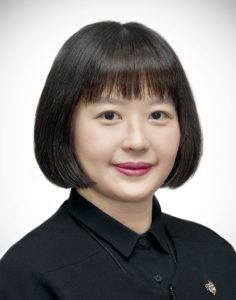Elizabeth Ong from the diocese of Christchurch has recently completed a JCL (Pontifical Licence in Canon Law) through St Paul University in Ottawa, Canada. She receives concurrently a civil Master of Canon Law degree from the University of Ottawa, Canada.

Elizabeth Ong
The studies involved a 4-year distance learning programme, which included online coursework, annual on-campus exams in Sydney, a thesis and seminar presentation, and an hour-long oral exam before a panel of four examiners. Her thesis subject was on New Zealand Privacy Law in Relation to Canon Law, with a focus on promoting the importance of complementary compliance of both realms of law.
Ms Ong has served in the Ecclesiastical Tribunal in the Diocese of Christchurch since 2013, and is the first married woman to be appointed by the Apostolic Signatura as an ecclesiastical judge for the Catholic Church in New Zealand. Prior to this, she worked as a solicitor, both in private practice and community law.
Considerable theological knowledge is a prerequisite to formal canonical formation, and most spend 2-3 years in post-graduate studies earning a licentiate degree (J.C.L.), further advancing towards doctoral studies (J.C.D.).
Ms Ong told NZ Catholic that “a canon lawyer, like a civil one, is trained to advise people about how to exercise their rights and to fulfil their obligations in accordance with the law”.
“Their objective is to ensure that ecclesiastical laws are properly understood and applied. They provide ecclesiastical legal advice and representation to Catholics, from those who are in authority – such as diocesan bishops and parish priests, to lay Church leaders like diocesan staff, and to the Christian faithful, such as parishioners.
“Issues or disputes can arise in almost any area of Church life, notably in areas of governance, policies, admission to sacraments, Church property and so on. Just like their civil counterpart, a canon lawyer’s functions can vary from being a legal adviser, mediator, advocate, prosecutor or judge, depending on the office they are appointed to.
Ms Ong added, “The Tribunal for the Catholic Church in New Zealand deals mainly with declarations of nullity of marriage, however tribunals have authority to deal with cases of rights within the Church, such as disputes between a parish and diocesan authorities, and trials for priests accused of misconduct. In secular society, canon lawyers can be appointed as expert witnesses in civil claims or government inquiries.”
She noted that “the spirit of the law is always primed towards the Church’s main mission, being the salvation of souls”.
Reader Interactions